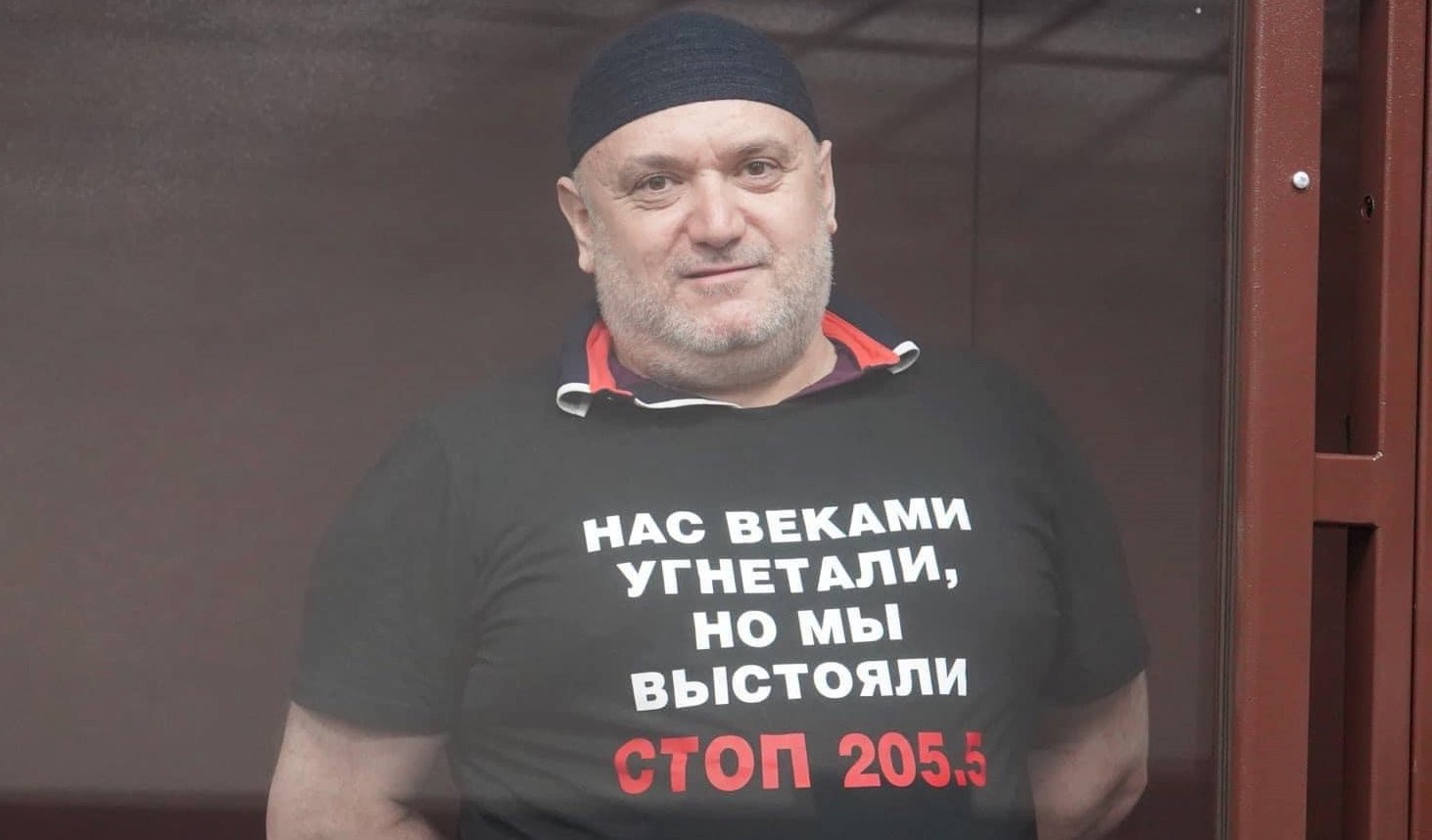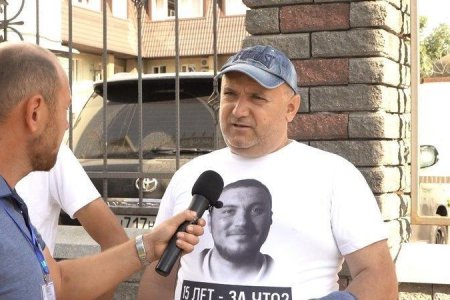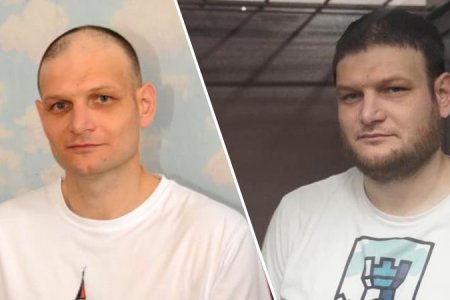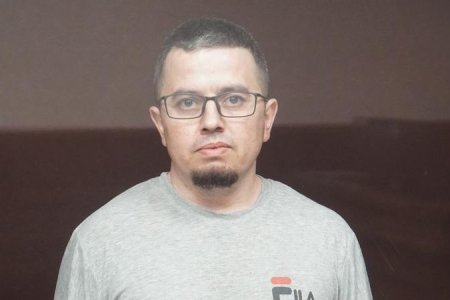
Russia’s notorious Southern District Military Court has sentenced Ansar Osmanov, a Crimean Tatar civic activist, to twenty years in the worst of Russian penal colonies. This appalling sentence against a man not accused of any recognizable crime comes just days after Russian president Vladimir Putin acknowledged that he has pardoned killers convicted of multiple crimes after they were recruited in prison to fight in Ukraine. As Osmanov’s lawyer, Emil Kurbedinov pointed out, the verdict also comes against a background of 7-8-year sentences for savage murder in occupied Crimea, with such convicted killers likely to be released having served half that time. Not one Crimean Tatar or other Ukrainian political prisoner has ever been released even one day earlier than the sentence passed.
This is the most brutal sentence so far passed, and it is ominous that it is a full two years longer than the 18-year sentence demanded in March by Russian prosecutor Sergei Aidinov. The ‘judges’ in this case: presiding judge Denis Aleksandrovich Galkin; Viacheslav Alekseevich Korsakov and Igor Viktorovich Shendrikov were almost certainly following ‘a directive from above’ when they handed down their verdict on 16 June 2023. Osmanov was sentenced to 20 years in a harsh-regime prison colony, with the first five years to be in a prison, the harshest of all Russian penal institutions.
For the past five years or more, the Russian FSB have been openly seeking to crush the vital Crimean Solidarity human rights movement, and are using ever-increasing sentences against Crimean Tatars, like Osmanov, who have clearly been targeted because of their civic activism or journalism.
Ansar Osmanov (b. 1975, and a father of five) is one of four Crimean Tatar civic activists who were arrested in February 2022. Osmanov was very active in Crimean Solidarity, attending political trials, showing solidarity with the victims of repression and their families.
Kurbedinov commented on the day of the arrests that Osmanov understood all too well why he had been arrested, and what kind of ‘trial’ and sentence awaited him. It should be noted that international organizations and democratic states have also condemned Russia’s evident abuse of its legislation on ‘terrorism’ as an attempt to crush the Crimean Tatar human rights movement.
Like many other members of Crimean Solidarity, Osmanov first faced administrative charges. Like other members before him, he understood the danger he faced, yet refused to be silenced and also ended up arrested on the same spurious ‘terrorism’ charges. These derive solely from a flawed and highly secretive Supreme Court ruling in 2003 which declared the peaceful transnational Muslim organization Hizb ut-Tahrir to be ‘terrorist’. Hizb ut-Tahrir is legal in Ukraine and in most countries, and there is no evidence that its members have carried out acts of terrorism anywhere. It is telling that Russia only began imposing large sentences for supposed ‘involvement’ in Hizb ut-Tahrir in 2013, and in occupied Crimea have predominantly used them against Crimean Tatars or other Ukrainian Muslims with a pronounced civic position.
Three of the four Crimean Tatars arrested on 9 February 2022, including Osmanov, were charged with the harsher of the two charges – Article 205.5 § 1 of Russia’s criminal code (‘organizing a Hizb ut-Tahrir group’). Russia is now also standardly adding the truly bizarre charge of ‘planning to violently seize power’, under Article 278, also on account of the same flawed Supreme Court ruling.
The charges against Osmanov are based on an illicitly-taped conversation between him and fellow political prisoner Ernest Seitumerov, at the latter’s home. Both men were arrested on 9 February 2022, and charged under Article 205.5 § 1 with ‘organizing a Hizb ut-Tahrir group’ over the same conversation which touched on religious subjects, as well as Russian repression. It is telling of the flawed nature of these prosecutions that, despite being charged over the same conversation, Osmanov and Seitosmanov were on trial separately and Seitosmanov was sentenced on 24 May 2023 to 18 years’ imprisonment. The FSB are known to get ‘rewards’ for such cases, in the form of promotion or bonuses. Since the prosecutions are used to prop up their ‘statistics on fighting terrorism’, it is quite possible that the two men were separately ‘tried’ in order to thus double such ‘career benefits’.
The ’evidence’ in both ‘trials’ was identical: the same illicitly taped conversation; the same flawed ‘assessment’ of this conversation by FSB-loyal ‘experts’ and the same ‘secret (anonymous) witnesses’. The defence in both trials provided an independent linguistic analysis of the so-called ‘assessment’. Unlike the ‘experts’ whom the FSB standardly uses, Yelena Novozhilova is a qualified court expert. She stated clearly that she found “no signs of any calls to violence or to terrorist activities” in the tape.
In Osmanov’s case, the prosecution would have cited as ‘evidence’ two ‘prohibited’ religious books, claimed by the FSB to have been found at Osmanov’s home. The FSB invariably prevent lawyers from being present during their armed searches, and this time they even stopped Kurbedinov from reaching Osmanov’s home by disconnecting his phone. Although Osmanov’s family were shut away in the kitchen, his daughter was able to catch one of the men hiding two books under the mattress in the children’s room as they were just beginning their ‘search’. No devout Muslim would keep religious books under a mattress, but, like independent analyses by real experts, this is invariably ignored by the court.
In all such cases, the prosecution also makes use of ‘secret witnesses’, whose identity is concealed from the defence and whose ‘testimony’ cannot be verified. Such ‘witnesses’ may, in fact, have never even met the defendant, and the court invariably collaborates with the prosecution in blocking questions that would expose these ‘witnesses’ lies.
Ansar Osmanov will remain at a SIZO [remand prison] in Rostov (Russia) until the appeal hearing.
PLEASE WRITE TO HIM!
The letters tell him that he is not forgotten and Moscow that such political persecution is being closely followed. Letters need to be on ‘safe’ subjects and in Russian. If that is a problem, the letter below (copied by hand) would be fine.
Здравствуйте,
Желаю Вам здоровья, мужества и терпения, надеюсь на скорое освобождение. Простите, что мало пишу – мне трудно писать по-русски, но мы все о Вас помним.
[Hi. I wish you good health, courage and patience and hope that you will soon be released. I’m sorry that this letter is short – it’s hard for me to write in Russian., but you are not forgotten. ]
Address
344022, Россия,, Ростовская обл., г. Ростов-на-Дону, ул. Максима Горького, 219, ФКУ СИЗО-1
Османову, Ансару Исмаиловичу, г.р. 1975
[Or in English
344022 Russian Federation, Rostov on the Don, 219 Maxim Gorky St, SIZO-1
Osmanov, Ansar Ismailovych, b. 1975]



